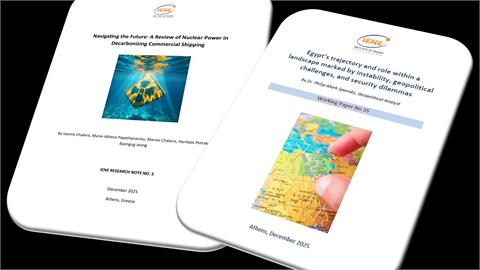As international oil prices continue to tumble, with ICE September Brent, the international benchmark, now trading below $ 50 per barrel, a new pessimism is taking hold across markets with the oil majors reporting much reduced profits and the shelving of almost $ 200 bn of new projects. A new oil order is now in sight based on much lower prices while an intense fight is taking place between main producer nations in order to protect and even expand their global market shares
As international oil prices continue to tumble, with ICE September Brent, the international benchmark, now trading below $ 50 per barrel, a new pessimism is taking hold acrossmarkets with the oil majors reporting much reduced profits and the shelving of almost $ 200 bn of new projects. A new oil order is now in sight based on much lower prices while an intense fight is taking place between main producer nations in order to protect and even expand their global market shares.
The emergence and consequences of this new oil order are being examined in IENE’s latest Monthly Analysis, part of the Institute’s ‘SE Europe Energy Brief’, sent to members on August 7 . The new oil order, notes IENE’s analysis, largely dictated by Saudi Arabia’s policies and shaped by the rest of the OPEC, foresees the continuation of weak oil prices and hence the curtailment of exploration activity by the IOC’s and also by several small and medium size independent companies. A situation which inevitably will lead to less discoveries globally over the next two to three years. With reserves unable to be replaced that easily by the NOC’s alone, a situation will arise at some point where demand will start outstripping supply. A return to much higher prices could then follow thus completing the ‘boom and bust’ cycle where it appears that we have now entered.
Saudi and OPEC policy apart, observes IENE’s analysis, the new oil market reality is consequent to the ending of a high demand cycle which apparently came to an end last year. But the new oil price regime could prove beneficial to the economies of SE Europe which could realize total savings of approximately $ 29 billion if prices move on average at $ 50 per barrel over the next 12 months. From data presented in this latest IENE analysis it transpires that the 13 country SE European region, including Turkey and Greece, paid some $ 56 bn for net oil imports in 2013. Thus a much reduced oil import bill could help governments reduce drastically their public deficits and at the same time sustain economic growth.




